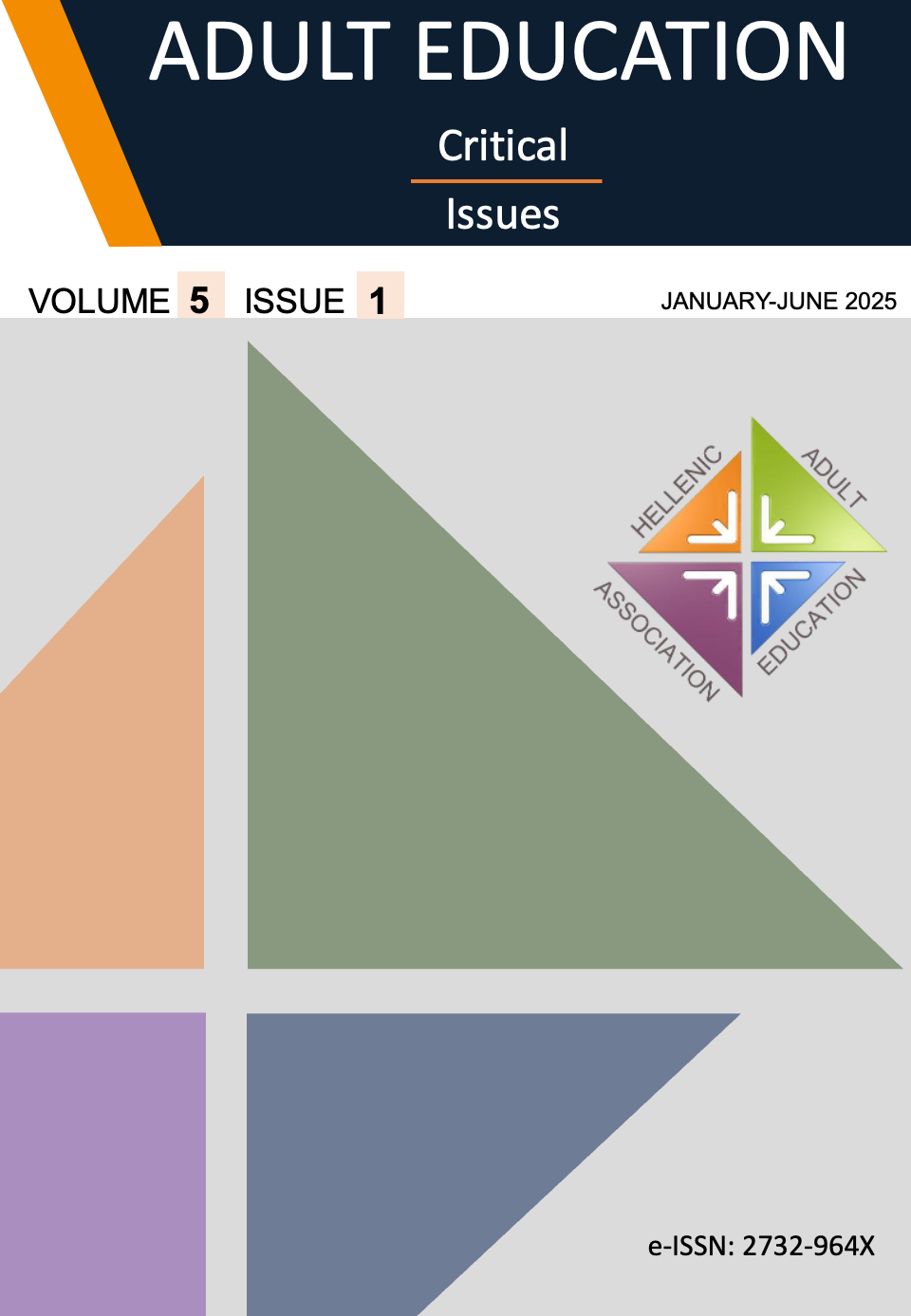Η διάγνωση εκπαιδευτικών αναγκών (ΔΕΑ) στο πλαίσιο της φιλοσοφίας της συμμετοχής

Abstract
This article focuses on the identification of educational needs in the educational process within participatory philosophy. It is one of the processes that make up the educational process at individual and group level. It is designed, implemented, evaluated and updated based on the development of educational needs. Learning incorporates change while respecting diversity, whether it concerns the whole or a part of it. Educational needs include explicit educational needs, but also underlying and hidden educational needs that are not clearly expressed (Amu Centre Copenhagen, 1992). The components that constitute such needs relate to characteristics, knowledge, skills and abilities, weaknesses and expectations, limitations and desires. At methodological level participatory observation, case studies, role-play, project work, interviews, workshops, etc. are used. Educational needs are also investigated during the assessment as they may be subjects, priority areas or even criteria of evaluation. The findings of the evaluation feed new or existing data back into the identified educational needs. Factors influencing the identification of educational needs are the time available, the internal educational policy of VET organizations, the appropriately qualified workforce, the existing know-how, participatory assessment, educational roles and relations, the group dynamics, the current institutional framework, etc.
Article Details
- How to Cite
-
Σιδηρά Β., & Ναγόπουλος Ν. Ι. (2025). Η διάγνωση εκπαιδευτικών αναγκών (ΔΕΑ) στο πλαίσιο της φιλοσοφίας της συμμετοχής. Adult Education Critical Issues, 5(1), 87–104. https://doi.org/10.12681/haea.39036
- Section
- Articles

This work is licensed under a Creative Commons Attribution 4.0 International License.
Authors who publish with this journal agree to the following terms:
- Authors retain copyright and grant the journal right of first publication with the work simultaneously licensed under a Creative Commons Attribution License that allows others to share the work with an acknowledgement of the work's authorship and initial publication in this journal.
- Authors are able to enter into separate, additional contractual arrangements for the non-exclusive distribution of the journal's published version of the work (e.g., post it to an institutional repository or publish it in a book), with an acknowledgement of its initial publication in this journal.
- Authors are permitted and encouraged to post their work online (e.g., in institutional repositories or on their website) prior to and during the submission process, as it can lead to productive exchanges, as well as earlier and greater citation of published work (See The Effect of Open Access).


